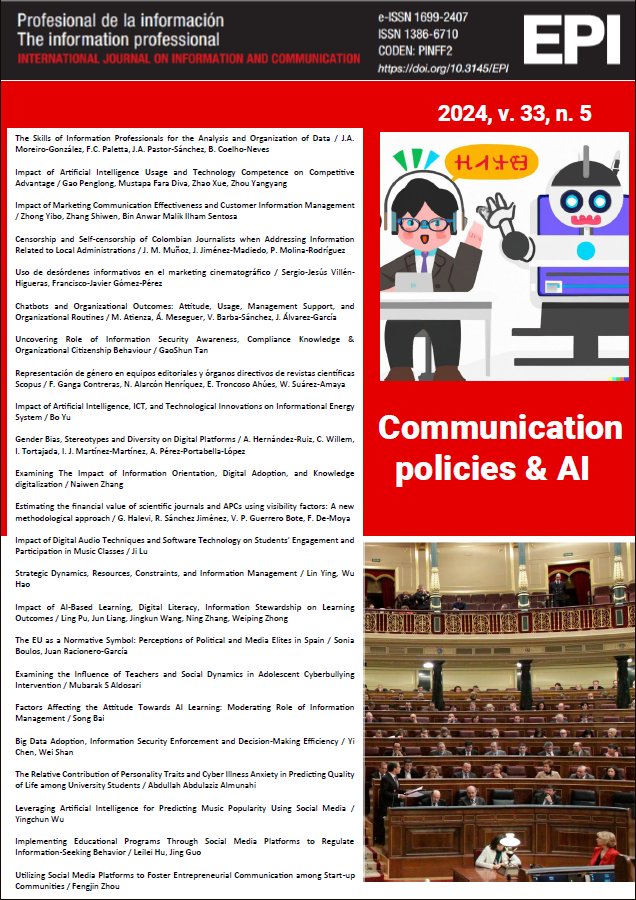The Relative Contribution of Personality Traits and Cyber Illness Anxiety in Predicting Quality of Life among University Students
DOI:
https://doi.org/10.3145/epi.2024.ene.0520Palabras clave:
Personality Traits, Cyberchondria, Quality of Life, University Students, Saudi Arabia, Psychological Well-being, Cultural Scale Development.Resumen
This study investigates the influence of personality traits and cyberchondria on the quality of life (QoL) among Saudi Arabian university students while also developing a reliable and culturally appropriate QoL scale. Using a cross-sectional design, 376 students completed self-report measures assessing personality traits, cyberchondria, and QoL, aiming to identify dominant traits, dimensions of cyberchondria, and their predictive relationships with QoL. The findings revealed that openness, conscientiousness, agreeableness, and extraversion were the most prevalent personality traits, whereas neuroticism was the least. Among the dimensions of cyberchondria, the cognitive aspect was most prominent, followed by emotional and behavioural aspects. Regarding QoL, the health domain scored highest (4.12 ± 0.76), followed by social (3.96 ± 0.82) and psychological (3.88 ± 0.91) domains. Regression analysis identified agreeableness (β = 0.45, p < 0.01) and behavioural aspects of cyberchondria (β = -0.34, p < 0.01) as significant predictors of QoL. The newly developed 43- item QoL scale demonstrated excellent internal consistency (Cronbach's α = 0.89), confirming its reliability. The study highlights that fostering agreeableness and reducing cyberchondria could improve students' well-being, contributing to the existing literature on QoL determinants and offering a valuable tool for further research
Descargas
Descargas
Publicado
Cómo citar
Número
Sección
Licencia
Derechos de autor 2025 Profesional de la información

Esta obra está bajo una licencia internacional Creative Commons Atribución 4.0.
Condiciones de difusión de los artículos una vez son publicados
Los autores pueden publicitar libremente sus artículos en webs, redes sociales y repositorios
Deberán respetarse sin embargo, las siguientes condiciones:
- Solo deberá hacerse pública la versión editorial. Rogamos que no se publiquen preprints, postprints o pruebas de imprenta.
- Junto con esa copia ha de incluirse una mención específica de la publicación en la que ha aparecido el texto, añadiendo además un enlace clicable a la URL: http://revista.profesionaldelainformacion.com
La revista Profesional de la información ofrece los artículos en acceso abierto con una licencia Creative Commons BY.




